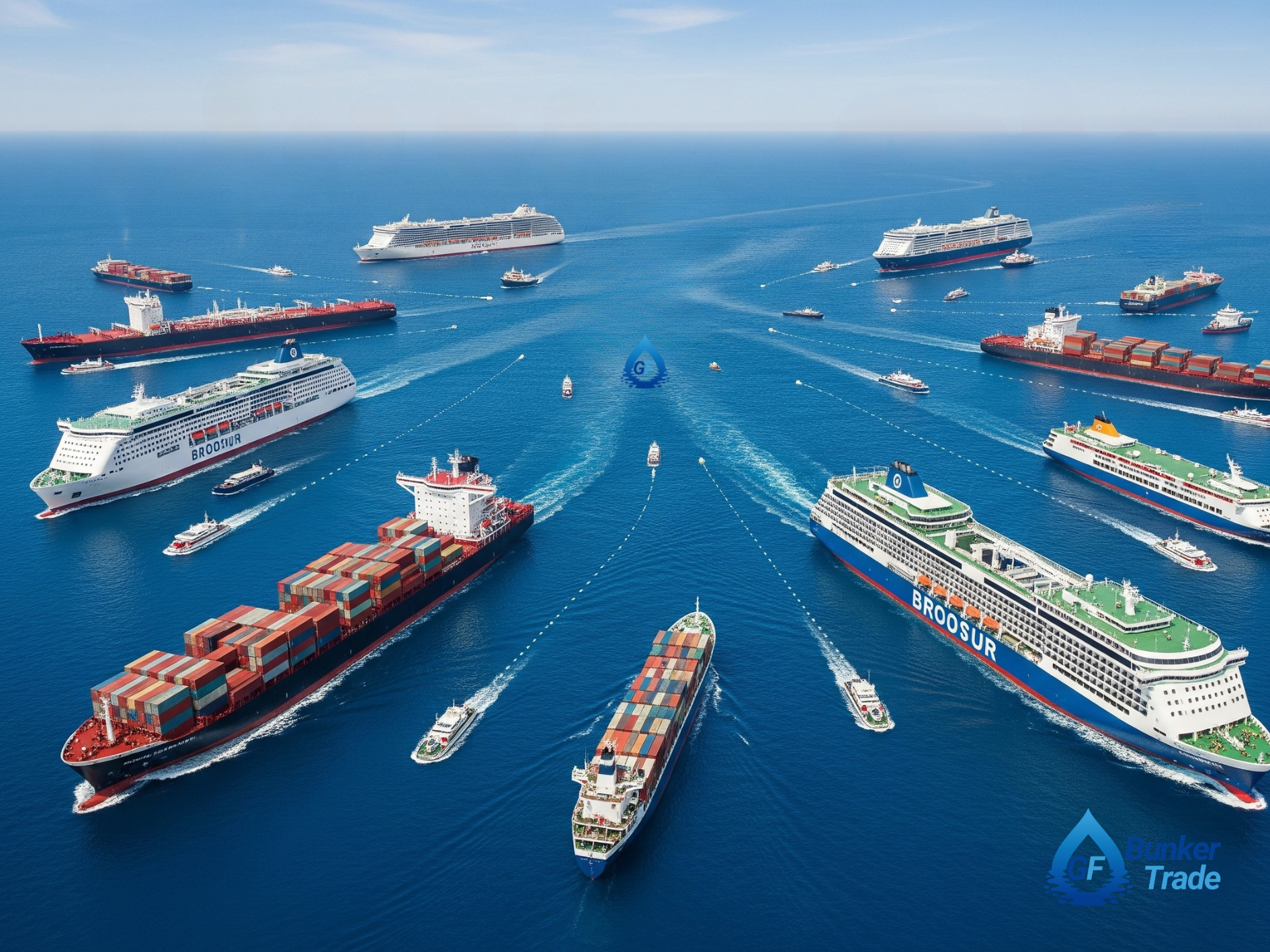The global shipping industry is at a pivotal moment, driven by an urgent need to decarbonize. For shipping companies, understanding and complying with the evolving green shipping regulations from the European Union (EU) and the International Maritime Organization (IMO) is no longer optional – it’s a critical strategic imperative. At GF Bunker Trade, we understand these complexities and aim to shed light on how vessel operators are navigating this transition.
Key Marine Environmental Regulations Affecting Shipping Today
Shipping companies are currently grappling with a formidable set of green shipping regulations, each with its own set of challenges and implications:
IMO 2020 (Sulphur Cap)
This regulation, already in effect, reduced the permissible sulfur content in marine fuel to 0.50% m/m globally. It forced many vessels to switch to Very Low Sulphur Fuel Oil (VLSFO) or install scrubbers, fundamentally altering the bunker fuel market.
EU Emissions Trading System (EU ETS)
As of January 1, 2024, shipping is included in the EU ETS. This “cap-and-trade” system requires shipping companies to purchase and surrender allowances for their greenhouse gas (GHG) emissions (CO₂, CH₄, N₂O). Coverage includes:
- 100% of emissions for intra-EU/EEA voyages
- 50% for voyages starting or ending outside the EU/EEA
- Increasing to 70% in 2025 and 100% in 2026
FuelEU Maritime Regulation
Coming into force in 2025, this regulation sets a decreasing limit on the average annual GHG intensity of energy used onboard vessels:
- 2% reduction in 2025 (relative to 2020)
- 80% reduction by 2050
- Mandates Onshore Power Supply (OPS) for specific vessel types in EU ports from 2030
IMO’s 2023 Strategy (Net-Zero by 2050)
The IMO has adopted a goal to reach net-zero GHG emissions by or around 2050, with milestones for 2030 and 2040. This will drive further technical and operational changes across the industry.
The Cost Impact of EU ETS and Fuel Transition
The most immediate impact for shipping companies is a rise in operational costs:
Carbon Pricing
The EU ETS introduces direct costs for emissions. Companies must consider the fluctuating price of EU Allowances (EUAs), impacting voyage profitability and freight rates.
Fuel Transition Costs
Alternative marine fuels such as LNG, methanol, ammonia, and biofuels come with:
- Higher upfront costs
- Capital expenditure for dual-fuel engines or retrofits
Technology Investments
Operators must invest in:
- Energy efficiency technologies (e.g., air lubrication, propeller optimization)
- OPS-compatible systems to meet FuelEU Maritime requirements
Compliance & Administration
Emission monitoring, reporting, and verification (MRV) require dedicated digital tools and human resources, increasing administrative overheads.
Low-Carbon Marine Fuels: Options and Trade-offs
Shipping companies are exploring diverse fuel strategies:
- VLSFO/MGO: Still viable short-term, but subject to carbon pricing.
- LNG: Offers lower SOx, NOx, and PM emissions. Methane slip is a concern.
- Methanol/Bio-Methanol: Easier handling and GHG reductions from renewable sources.
- Ammonia/Hydrogen: Long-term net-zero solutions requiring safety protocols and infrastructure.
- Biofuels: Drop-in option for immediate GHG reduction, but supply and certification are crucial.
Green Compliance Strategies for Ship Operators
Operators are adopting strategies to align with green shipping regulations:
Operational Optimization
- Slow steaming
- Route and weather optimization
- Just-in-time arrivals
Technical Upgrades
- Hull and engine enhancements
- Exhaust gas recirculation (EGR)
Onshore Power Supply (OPS) Adoption
Companies are retrofitting fleets to comply with OPS mandates by 2030.
Data Management & Reporting
Robust digital platforms enable continuous emissions monitoring and MRV compliance for EU ETS and FuelEU Maritime.
Carbon Cost Integration
Shipping firms are modeling carbon cost forecasts and incorporating surcharges into freight contracts.
How GF Bunker Trade Supports Sustainable Shipping
At GF Bunker Trade, we help shipping companies succeed in a carbon-constrained world:
- Expertise in global fuel regulations and compliance strategies
- Sourcing of VLSFO, MGO, and emerging alternative marine fuels
- Competitive pricing and customized bunkering solutions
- Strategic guidance to reduce emissions and manage carbon costs
Ready to Future-Proof Your Fleet?
Contact GF Bunker Trade for tailored fuel supply strategies and expert advice on sustainable bunkering.
#green shipping regulations

